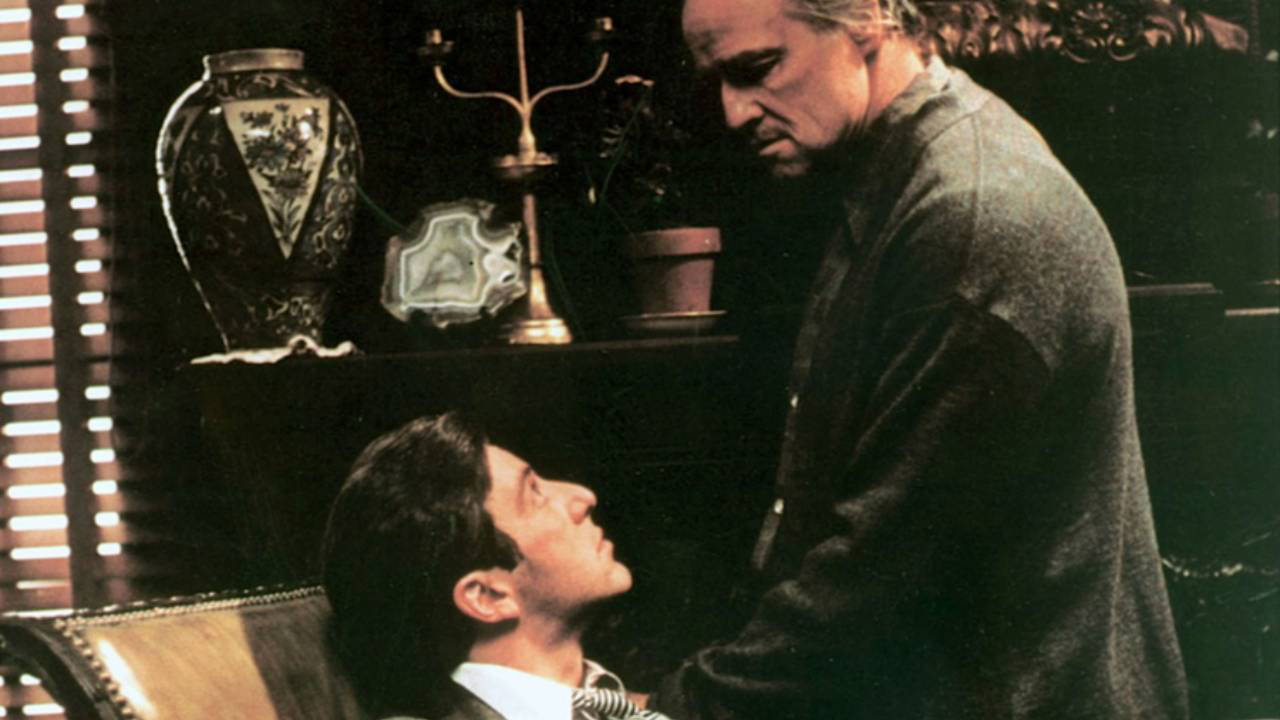Psychological drama Surfer and cult classics The Godfather and The Godfather 2 are in theaters: In search of lost time

"You can't stop a wave; it's full of pure energy. Everything moves toward a breaking point," a man tells his son in Luna Bay. His father taught him to surf there when he was young, and the surfer, who has come to buy his childhood home, will teach his son to surf in the same bay. He's on the verge of divorce and wants to strengthen his relationship with his son.
A gang called the Cove Boys appears before him. Their leader, Scally, declares, "Those who don't live here can't surf here." Scally is an alpha, while the Surfer is a beta male. Scally believes that modern society has softened men; he believes that a soft society produces weaker men. The Surfer is humiliated in front of his son. The gang's intimidation continues. Remaining in the cove and battling the cult, the Surfer embarks on a spiritual journey, reclaiming the lost time of his youth. Irish director Lorcan Finnegan (Vivarium, The Nocebo Effect) conveys to the audience the lengths the Surfer is willing to go to achieve his goal. A moment comes when the Surfer unleashes his repressed primal emotions, unleashing the beast within him. Using a narrative language similar to the aesthetic texture of low-budget films shot in Australia in the 1970s and 1980s, Finnegan pays homage to the Australian New Wave Movement by using 70s title sequences, effects, zooms, frame distortions, and shimmers.
THE POWER OF NATUREThe psychological drama, which tells the story of the main character, the Surfer, who first loses everything to achieve his goal and then recovers, is reminiscent of films such as The Swimmer (1968), Wake in Fright (1971), Picnic at Hanging Rock (1975), and Long Weekend (1978). The film, which criticizes toxic masculinity, tribalism, and discrimination while extolling the power of nature, has a very successful cast.
In Surfer, Nicolas Cage finally takes on a character with depth. Julian McMahon, who passed away on July 2nd, delivers a powerful performance as the cult leader in Scally. Supporting roles include Nicholas Cassim, Justin Rosniak, and Finn Little. Australia's vibrant wilderness is the film's central character, and the landscape and sunset images are poetic. Sea, earth, wind, flames, and nature are intertwined, and the characters, oscillating between reality and fantasy, become fluid and elusive.
'THE FATHER' MOVIE IS 53 YEARS OLD
"The Godfather became a cornerstone for films about organized crime," said William Friedkin, director of The Exorcist. The film changed the course of American cinema, became an indispensable part of American culture, and influenced both filmmakers and emerging directors. It was made during a difficult time in Hollywood, when, in the late 1960s, the forces of change were threatening the aging film industry. When the industry's pioneers sold their studios to major corporations, Francis Ford Coppola and George Lucas founded a small company in San Francisco.
In 1970, moviegoing attendance was low. Paramount, the largest studio, needed a breakout film. Elia Kazan, Costa Gavras, Arthur Penn, and Richard Brooks turned down the opportunity to direct Mario Puzo's The Godfather. Coppola described the film as a family history, a metaphor for capitalism in the United States. The studio initially refused to cast Marlon Brando and Al Pacino, but after seeing the massacre scene in the diner, the company changed its mind. The Godfather was also the first film to portray the mafia from the inside. As in the tragedy, the characters acted out of honor, loyalty, justice, and a sense of duty. The Corleone family, seeking to achieve the "American Dream," continued their struggle for survival. When Vito Corleone died, his son Michael took over.
The Godfather Part II is a decadent film, with Michael becoming even more ruthless and brutal than his father. Both films starred some of the era's finest actors: Marlon Brando, Al Pacino, James Caan, Robert Duvall, Diane Keaton, and Talia Shire. The American Film Institute named The Godfather the best film after Citizen Kane (Orson Welles, 1941). At 51 and 53 years old, The Godfather Part II (1972) and The Godfather Part II (1974) maintain their cinematic excellence and will continue to do so.
Cumhuriyet





